Beginnings in Life and Literature
People look at the New Year as a new beginning. Although on December 31st/January 1st one year slips into another, we make a huge deal about the difference between these two days.
As a writer—and a woman—I can tell you that new beginnings happen all the time, not just at the beginning of a calendar year. New beginnings are just a state of mind. They happen when we make them. And sometimes they just happen.
The birth of my first child was a huge milestone beginning that had nothing to do with the New Year. Both my kids were born in the late spring.
The first time especially—I could never have imagined. Nothing could have prepared me for 14 hours of labor and then a c-section, or, during the worst of it, forgetting I was having a baby and just wanting to die because the pain was so bad.
The sometimes-pain of giving birth to a piece of poetry or prose has never made me want to die. I have been known to swear very loudly and eat way too many brownies. But writing pain is exciting—and I am not a masochist. The writing pain exhilarates and then transforms into a luscious energy that flows into the words coming from my mind.
There’s no denying, though, the special something about the moment when you sit down, a blank page in front of you, and start something new. Luckily for us writers “beginnings” aren’t tied to a day of the year. Inspiration hits. An editor gives you an assignment. You realize you haven’t posted to your blog in two weeks.
The idea of artificial beginnings does have its appeal, though, just the way New Years resolutions do. Wouldn’t it be nice if every year on January 1st writers everywhere could sit down at their desks (or stand up, as is a current fad) and begin a story, a novel, an article, a blog—whatever—and write until they got to the end. But the creative cycle doesn’t work like that, and what we think of as beginnings often turn into middles, ends, or stuff that gets saved in a computer file we may eventually erase.
Strangely, though, this year, January 2012, I plan to plop myself in front of my computer, maybe even on New Year’s day, and once again begin a novel that’s been cooking for almost five years now.
The timing has a lot to do with the calendar. My husband and I plan to spend a month at our country house in upstate New York. Maybe like last year, we’ll end up snowed in for days at a time. If we lose electricity—I have plenty of paper and plenty of pens. I intend to write and write and write!
My problem with this novel has been largely about beginnings. The story takes place over a 100-year period (1190-1290 in England), and I knew that I didn’t want to take the story from one generation to the next. On the other hand, mortal people don’t live over 100 years. So the characters in the first chapters can’t be the same as the ones in the last, at least as far as a timeline goes.
My first stab—all 540 pages of it—started at the beginning of the action, a fire in York, England in the spring of 1190 that massacred the entire Jewish population of the city. The first chapter was, well, slow. With historical fiction comes exposition. Writers have to wriggle around that. Next I tried starting at the end, the final tragedy, the expulsion of the Jews from England. (When one is writing novels about Jewish history, death and persecution push in from the edges of the page. Just saying.) In fiction an ending can be a beginning, or at least the beginning of something else. In the history of the Jews in medieval England, the ending was the end.
A year or so ago, a friend of mine, a writer of “women’s fiction,” suggested I start with the “love story.” So I jumped 15 years ahead in the narrative, to a place where the main character is old enough to have a love thing going.
The passion may have sizzled, but the coherence fizzled. Then one day during a Twitter chat with a bunch of writers, I started talking about Anne Rice and a conceit underlying many of her novels: supernatural beings roaming the earth who recognize each other but go unnoticed by humankind. JK Rowling sort of has the same idea with the Muggles, who can’t see the magic (good or bad) in their world. “Yes,” I thought to myself, “I can have a character around for 100 years. It just can’t be human.”
So the novel now begins before the beginning, the part that involves all the main characters. And I have a link between the two sections – a supernatural element that feels natural in a historical plot. The characters, the shape of a baby’s head, the number of bricks in a kiln—all this is in my head, in notes, in outlines, in word sketches. Put together, the story should work.
And I’ll begin writing in January. I’m primed.
Thing is, as a woman, as a woman writer, I know that beginnings can happen any time. So if I find time before January to start, I shall. And if something freelance and lucrative turns up for January, I guess the novel will have to wait until February. And that will be OK too. Things come about when all the pieces fall into place—your hormones get it together, your water breaks, or you finally have the time to put those precious first words down.
It just happens. You begin.
What’s your take on beginnings?
—
Follow Linda on Twitter @wordwhacker.
Visit Linda’s Website. Subscribe to her personal Facebook profile, and like her Facebook Page. If you’re on LinkedIn too, connect with Linda Bernstein there.
Category: Blogging, On Writing

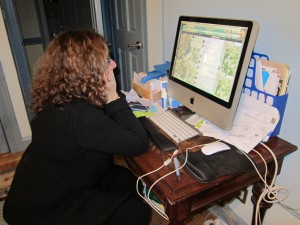
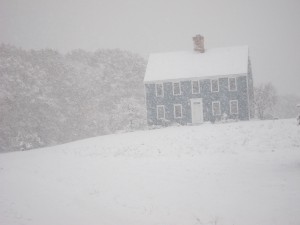
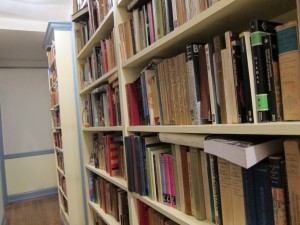





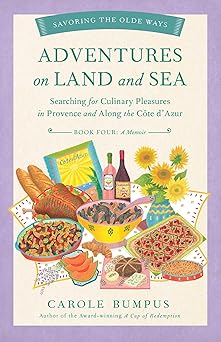
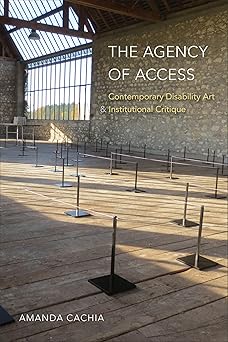
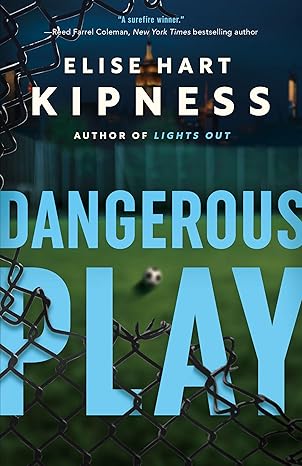
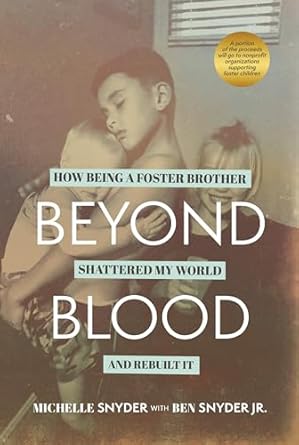
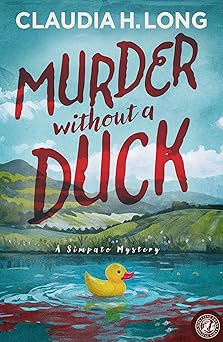
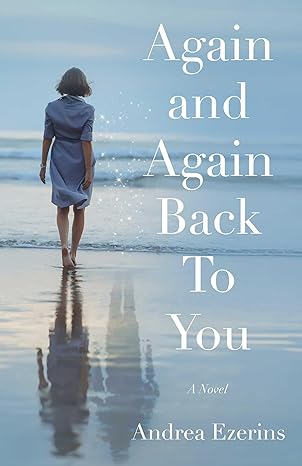
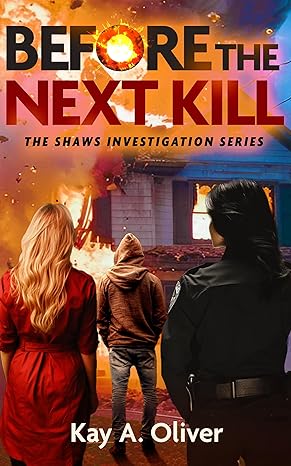
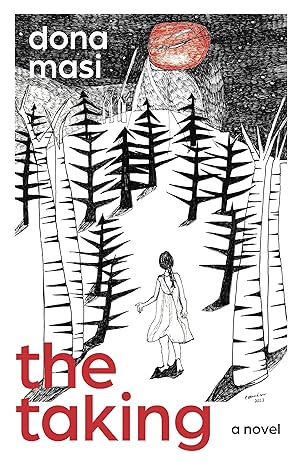

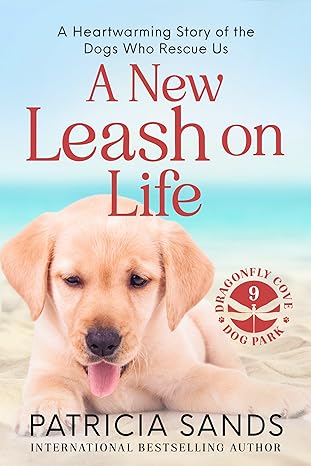

Hi Linda, thanks for really interesting post. I think “new beginnings” in writing can be more dreaded than “dreadful”, if you see what I mean?!
I hate facing the blank page, even though I know as soon as I am in the middle of the project, I won’t be to stop! That said, sometimes, with the best will in the world, life gets in the way of the best laid plans and the writing has to be put on hold – we are only human after all! A novel takes as long as it takes to write.
ps: Thought you might enjoy this quote ;o)
“If you wait for inspiration, you’re not a writer, but a waiter.” Anonymous
Totally love that last quote. I’m going to use it. Let’s try to find out who said it, and if it’s you — I’m going to quote you.
You asked what do I think of new beginnings the one thing that caught my attention was inspiration hitting you and the word begin to flow from within, Good read overall
Thank you so much Kristina.
Oh, boy, Linda…the dreaded beginning. I suppose I’d say for me the beginning of something has everything to do with time. I can be cooking dinner and have a very clear inspiration for something but know that for three or four more days I will not have one minute of silence to put anything down on paper. When that silence finally does come, then that is my beginning. I guess I just keep rearranging the calendar that way. But there comes a point, a moment, when if I haven’t been able to get those words out of my mind, as you say…I turn into a lunatic.
I hope you get snowed in. I hope you can’t go anywhere and get so much writing done we’ll all hate you!
Happy New Year, Linda!
I’m hoping that someone invents an app so I can put my iPhone to my head when I think of something good so I can get to it when I have time. Sort of Evernote with mental telepathy. Thanks for your generous response, Giselle.
I have started over a few times, and none of those times on January 1. Being a teacher, the new year always started in August, with the first day of school. Then, two years ago, I rented a studio apartment in San Francisco in November, and that began a year of magical living. Returning to Fresno this past year, I sort of started again, but this time in March, and I’m sort of still working on that new beginning.
After so many years in school, and being married to an academic, I still think the year begins in September. Thanks for your comment.
We share at least a couple things in common. We are both writers and we both understand the excitement and fear sometimes associated with the unknown of any new beginning.
I recently decided to resurrect a project that was a few years old. After writing my first novel five plus years past, I decided to bring it to life over the holidays. The ebook version is now available for only 2.99 on Amazon, and the hard copy version will be available soon.
The beginning of filling this project with life’s breath has certainly been a bit challenging…exciting…and lesson filled. I thought that you (especially during your NY travels) may be interested in reading the beginning work of this novice writer’s career. Below, please find an idea of the premise of WOMEN WITHOUT CHILDREN.
Liz, Diana, and Katie are three women living very different lives in three different parts of the country. Yet, unbeknownst to them, they share one very common thread; the same decision to live a life without children. Though each has made the same decision, each has come to her own conclusion for very unique, personal reasons of her own…consciously or subconsciously.
The societal pressures to conform to what has been deemed the “norm” during their child-bearing years sometimes weighs heavily on their hearts, minds and souls causing them to question their common choice and perhaps even crater under the heft of the spoken and unspoken expectations of the world around them.
Your book sounds so interesting, so timely. Good luck, and keep Women Writers informed of your progress.
Thanks for this thought provoking piece, Linda. And for sharing your beginnings. I took a step back to think about what they might mean for me. Beginnings are perhaps the most exciting part of any endeavor, yet, the most challenging. How some beginnings lead to something bigger and then finally meet a cathartic end; and how others fizzle away into nothingness, will always remain a mystery to me. What I hope to do is not let beginnings die before they begin, give them a chance, take action and water that thought when it promises to germinate. Nothing more, nothing less.
New Year’s doesn’t even figure on my calendar 🙂
All the best on your novel! I am terribly intrigued and hope to hear more about it from you.
Thank you, Shipra
Wonderful article. 🙂 I’m a great believer in allowing new beginnings to happen organically. It can happen in the beginning, middle or end of the year. It’s recognizing when the energy is around you that’s the tricky part. Every single thought we have is energy that can be transferred, and that means it has somewhere to go at that particular time in our lives. Those thoughts can be harnessed at any time and a new beginning is born. And you’re right “an ending can be a beginning, or at least the beginning of something else.” Well said. Good luck with your novel. It’s sure to have a wonderful beginning, middle and end. 🙂
Thank you so much Vacen for your thoughts and encouragement.
That’s interesting! We often lose sight of other important beginnings and do focus so much energy on these other days. Certainly, we celebrate birthdays, the start of a new career, a promotion, retirement, and the list could go on and on, but we don’t consider these “beginnings” necessarily. I’ve gotten to the point of looking at each month, each week, and each day as a new beginning. All of these provide time to essentially “start over”. The beginning of the month is a good time to start, but it’s not necessarily the only time. You can start whenever you’d like, but they are all beginnings.
Also, I completely understand where you’re coming from. I work with authors and love writing myself, so I know that writing pain all too well. 🙂
Thank you so much Elise. This is such a nice comment.
In my mind beginnings happen for me after I’ve ended something; something related to the beginning or even not related to it. Letting go of something in or of the past (either dropping it or completing it) often is the enabler to move forward with something new and different, both now and in the future.
The idea of a common thread keeping the story together is of course very valid…..and does not have to be a spirit or something super natural (as in Anne Rice) but an object or place, as the house in Norah Lofts trilogy..spanning several hundred year of English history. I also remember a serialized story, told to me when I was 7 or 8 years old, every night for several months by my father (who was a writer) about a coin collection that passed through multiple hands over many many years…… and the coins were the thread and the influencer that colored the people’s lives that came in contact with the collection.
I don’t remember much about the period of History you are writing about except that William the Conqueror (whom we did quite thoroughly in UK history classes) arrived in England with a group of Jews, which was in essence the beginning of their permanent presence there (until their expulsion around 1200?) If I recall the Jews established a more sophisticated merchant class but with their success came the usual jealousy which often leads to their persecution…. you know more about that than I do, who only vaguely remembers a history class, oh so very many years ago!
I love the house where you will write in a cocoon of snow…..and I also have books,books,books and haven’t written my collection of short stories yet…which have been on the back burner for many years. I suspect I have to complete (end) the novel my mother started ~ The Prodigal Mother (only chapter 13 to go with all my mother’s notes) and commit to a very good editor… before I can get going on my own collection of “Images of Life”
Meeting you is one of my 2011 twitter high points. Do they have Skype in upstate NY?
BTW parrots have been known live for over 100 years…….
CHEERS @CASUDI
Hi
You’re right about an object being able to hold a story together. Did you ever read Marek Halter’s The Children of Abraham? It’s quite compelling, and I won’t say anything else because it would be a spoiler. You know more about Jewish history in England than most people do, I’ll say. Nobody seems really to know what the Jews were doing there. There are scant records, and the scholars all argue what they mean. It seems to be that at the time of the expulsion, 1290, things were pretty bad.
I think that working on a book your mother started sounds amazing. I find that I can leap frog a project if I have to, but the one that was supposed to be finished first still niggles at me the whole time.
Best,
Linda
I love your quote, “The writing pain exhilarates and then transforms into a luscious energy that flows into the words coming from my mind.”
I’ve rarely experienced any pain with writing. Partly because I don’t get anal about “it” being perfect and I write so much, so often, and so quickly.
And, believe it or not, I enjoy getting good notes. Occasionally the notes I’ve gotten when I guest-blog have required a virtual rewrite. I do that when I see the wisdom and “get” the notes. Every time that’s happened, the result is so much better.
As for beginnings, I am a creature of habit so I like routine. The only beginnings I’ve ever enjoyed have been the early stages of romance. That, however, is a thing of the past as I just celebrated my 3rd wedding anniversary and our romance is no longer beginning…just blossoming!
Happy New Year, Linda!
Thank you Bruce.
I generally don’t have “writer’s block” either, though sometimes with fiction it gets hard moving a story forward. And when you’re been a good self editor, you have to learn to “kill your darlings,” as a fiction workshop leader once told me — you know, that turns of phrase you love that really, in the end, is just “more words.”
You are such a romantic! I love your phrase “our romance is no longer beginning…just blossoming!”
Happy New Year, Bruce.
Nice article Linda. I enjoyed hearing about the evolution of the novel you are working on. Now I’ll be able to picture what you’re talking about when you mention “I’m working on my novel”. Thanks for proving that there is no reason to resort to finding photos on the web when you can take your own – with the three photos you have in illustration here.
Thank you Linda. I think it’s great when people can use their own photographs. But I’m not such a good photographer.
I am very attached to milestones, dates, anniversaries, etc. I set expectations much too high for those special days. However, life just doesn’t work like that. Beginnings and endings happen EVERY day. Calendars are just our human efforts to impose order on a chaotic universe. Unfortunately, the universe doesn’t seem to know anything about our calendars or clocks!
Exactly. That’s it exactly. Neither does the microwave repairman who is coming tomorrow at 7 a.m. On my calendar, that’s marked “last 5 minutes of sleep.”
Thanks for the comment.
L.